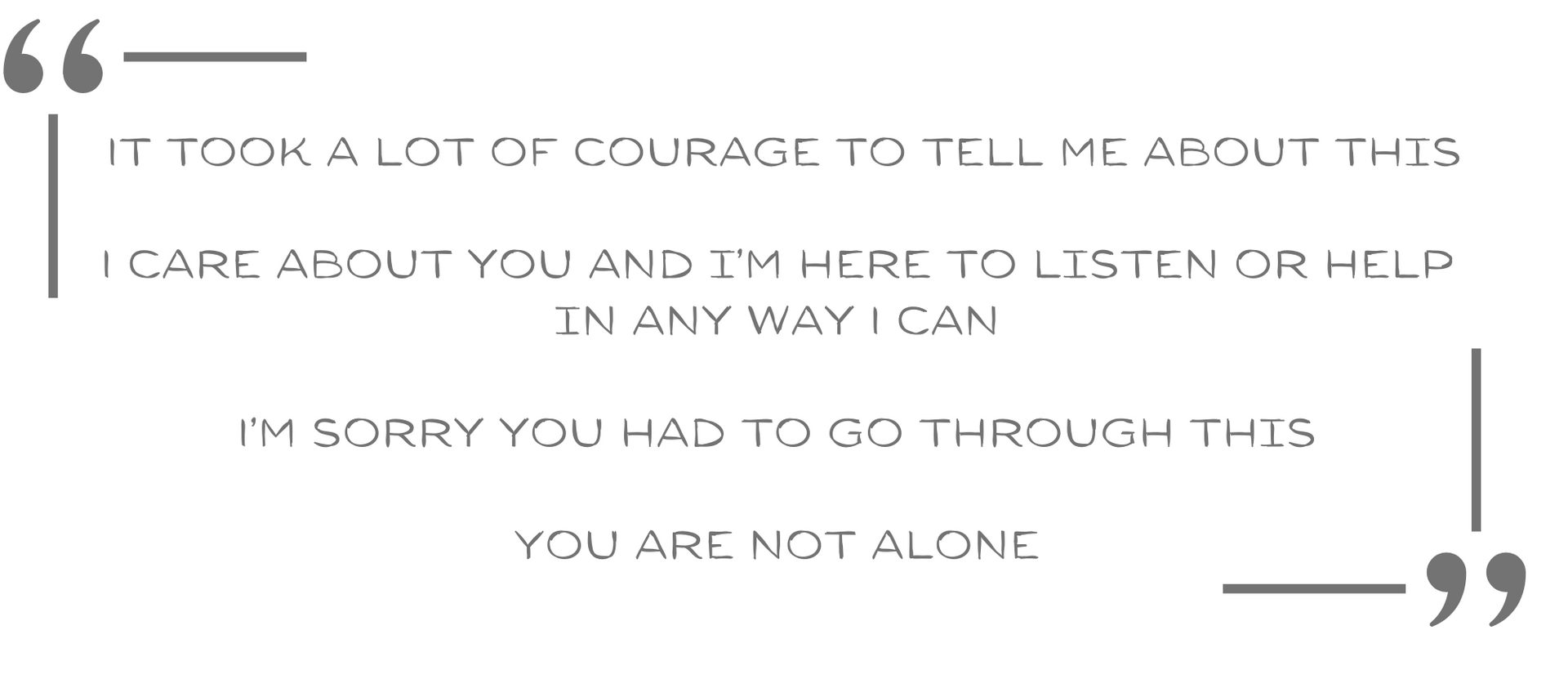How to support a survivor
It may be difficult to know how to react when someone tells you that they have experienced sexual harm.
For the person who has suffered the abuse, opening up to someone and sharing their experience can be really daunting for them. They may be unsure of your reaction and concerned that you might not believe them.
Listening
One of the most important things you can do is listen. It may be difficult for you to hear and process what you are being told, but for the survivor, it can be very difficult to open up, so it’s important you listen and allow them the space to do this.
Let them know that you are there for them and willing to listen. It’s important to respond in a supportive and empathic way. You could say things like:

Showing support
Your support is important, it shows that you believe them and you’re on their side.
Don’t take control by advising them what they should do, or telling them to report it to the police. It is their choice as to what support they want, how they want to access it and when they need it.
Be careful to never minimise or excuse what the abuser did. The survivor will come to terms with their feelings on this with the right support.
Allowing time and space
Survivors can respond to sexual abuse in many different ways and they will need time and space to allow them to deal with their emotions and reactions without pressure.
For many survivors, recovery can take a very long time, and the process of recovery and healing is different in each individual. There is no set or expected time frame for recovery.
By listening and respecting their wishes you are creating trust. Ensure you always ask before you initiate any contact, for example: “Would you like a hug right now?”
Looking after yourself
The partner or family of a survivor often feels completely at a loss to know how to deal with issues that arise following a disclosure of sexual harm. These feelings can involve anger, frustration, confusion or guilt.
An opportunity to talk through their concerns and anxieties with a family support worker can help.
We offer family support sessions for partners and family members of survivors to help you deal with some of these feelings, either as a one-off session or as a set of up to three sessions. Families can access this service regardless of whether the survivor is being supported by RASASC or not.
The sessions are free and confidential and aim to help you cope with your feelings and show you how best to support your loved one. Find out more about our family support service and how to refer on our
family support page.







